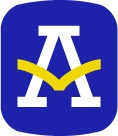Though their struggle for funding is an ongoing drama in Harrisburg, Pennsylvania charter schools are proud of their progress in the 20 years they have provided educational choice to families. Today, more than 135,000 PA students attend 166 brick and mortar and 14 cyber charter schools, all made possible by the signing of The Charter School Law in 1997 by then-Governor Tom Ridge.
“When parents are given the option to provide their son or daughter a better education, to remove them from what the parent decides is an inferior or failing school, to one the parent decides is a better education environment for their child, we ought to embrace that parent for making that difficult choice,” says Ridge.
Personal choice
Independently operated schools funded with public money and often offering specialized curricula, many charters boast smaller class sizes, a wider array of course offerings and a less-structured learning environment than traditional public schools. In particular, low-
income students, those with special needs and children who learn differently have found a welcome alternative in charter schools.
“Charter schools offer families a great opportunity for choice,” says Karen Schade, CEO of School Lane Charter in Bensalem, who sits on the Leaders Council of the PA Coalition of Public Charter Schools. “Students learn in different ways, so not having a one-size-fits-all model is beneficial to the students and community.”
Schade points to a School Lane Charter student who had severe discipline problems in his public school. In an initial meeting with his parents, the school set non-negotiable rules for his behavior. In his first year, he didn’t work very hard but he kept his behavior in check. The smaller environment allowed him to make a connection with other students and his teachers, providing him a different way to learn.
“He could get up and explore and inquirer without sitting and taking notes,” Schade recalls. The student thrived and by his second year he won a position in student council. “He found a purpose in a learning system that was different than what he had been exposed to before.”
20 years of growth
The last two decades have been focused on innovation, creating improvements on what mainstream public schools are providing, Schade says. Among the charter schools in PA, architecture, the arts, global issues, STEM, challenging college prep, and even niche topics such as maritime studies are offered as specialty themes. Charter students also must learn the core subjects specified by Pennsylvania.
 Cyber charter schools first became available to PA students in 2000. For students who do better in a home environment, 14 cyber charter schools now teach students via the Internet, and parents are typically more involved in supporting their child’s education.
Cyber charter schools first became available to PA students in 2000. For students who do better in a home environment, 14 cyber charter schools now teach students via the Internet, and parents are typically more involved in supporting their child’s education.
Responding to detractors
Critics argue that charter schools lack appropriate oversight, which Schade believes is due to misinformation. “We have double the oversight,” she insists. “We have a board I have to report to but also a board that’s part of my authorizing district. And I have to prove myself at every charter renewal every five years with information about test scores and what can be done with our students. That doesn'thappen in other types of public school.”
As for the criticism that they take dollars away from mainstream public schools, “It also leaves them with less students,” says Schade. “As it is, the charter schools don’t get the full amount of money that the district has for educating those students, so we’re actually educating kids for less money. It’s about an opportunity for choice and competition.”
Terri Akman is a contributing writer to MetroKids.







